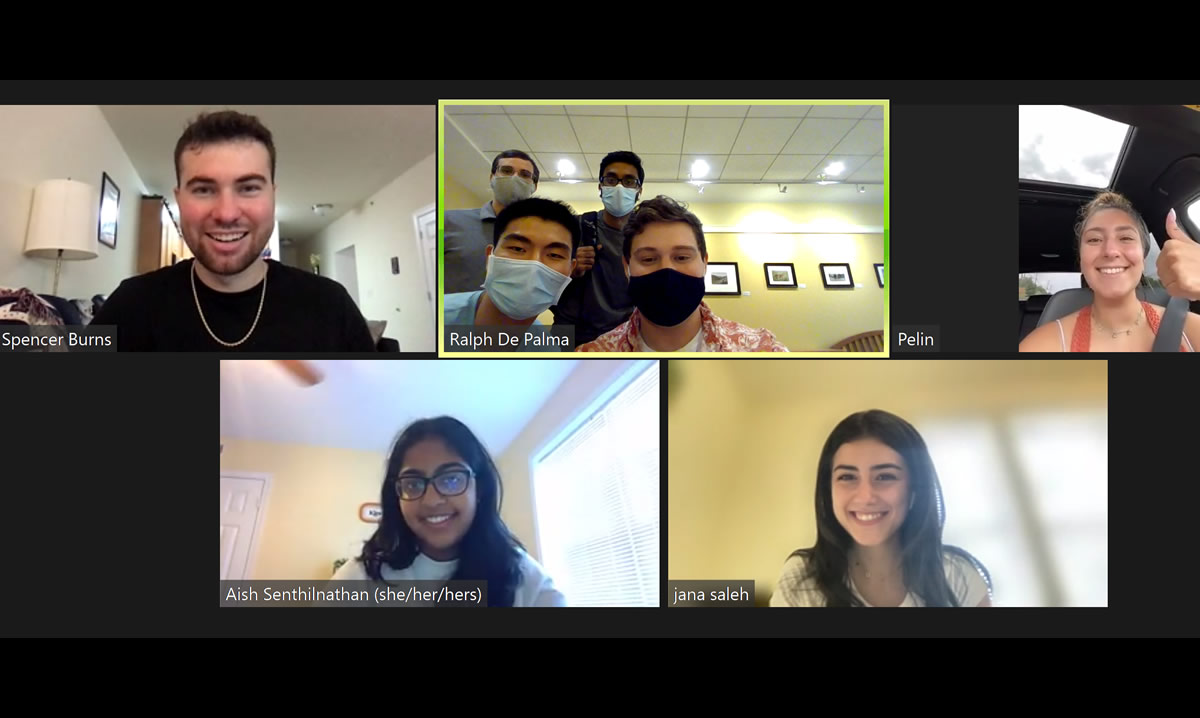
Many McIntire students interview for internships in financial services and consulting during the fall of their third year, often relying on what they learn in class throughout the interview and internship processes. Students also pursue opportunities in several other industries, yet these two tend to have the earliest and most popular recruiting cycles. During the fall of 2020, I recruited for positions in investment banking as well as sales and trading, both of which fall under the broader financial services category. McIntire taught me a wide range of skills that played a strong role in my success as a prospective employee and intern.
Recruitment is a fundamental first step toward working in finance or consulting.
In case you are unfamiliar, recruiting in these industries typically requires several rounds of interviews that demand a mix of technical and behavioral skills. Technical questions are usually industry-focused, like how to perform certain types of valuation in finance or running a case in consulting. Behavioral interviews contain the more traditional, personal questions that are used to judge your character. As an Integrated Core Experience student, I rapidly developed skills that fell into both of those buckets. On the technical side, I relied heavily on what I learned in ICE Finance, specifically honing in on Excel knowledge and valuation techniques that I would learn one day and regurgitate in an interview the next. On the behavioral side, the group work focus at McIntire deepened my interpersonal skills and offered various topics of discussion like my work for AB InBev. While the recruiting aspect of this journey is essential, my education at McIntire also helped me stand out as an intern among many accomplished students this summer.
The rigorous McIntire curriculum often builds an advantage in internship training.
When I first started my virtual internship, I had one week of training to ensure that all interns had a baseline of knowledge, and I felt prepared beyond expectations. To my pleasant surprise, I had learned roughly 90% of the material taught to me in training at least once in class. This felt like an immediate advantage, as those from other schools may have been learning concepts like time value of money for the first time, where I was simply reviewing my third-year finance curriculum. One class in particular, Intermediate Investments (COMM 4710), was aptly recommended for students interning in sales and trading. We learned relatively complex concepts like yield curves and bond pricing that were covered in the internship training curriculum.
Well-developed soft skills enable students to stand out among their peers.
After training, I finally started the broader internship. At first, I was learning a lot of brand new, highly specific information that was not taught in the classroom. One such example is the relative valuation of investment grade debt, something I hope you never need to understand. As time progressed, I learned more and more that had not been covered in the classroom, yet the soft skills that I had developed became absolutely essential to my daily workflows. These skills include but are not limited to discipline, business writing, and public speaking.
As an intern, I would start each day at 5:30 a.m. and often work late into the night or on the weekend, meaning that I had to practice a high level of discipline just to meet basic expectations. I was also tasked with writing daily market summaries, covering any overnight news I could write about before 7 a.m. With a full year of business writing under my belt, I consistently met these intensive deadlines. At the end of my internship, I gave two final presentations on what I had learned, both of which required preparing materials, speaking for roughly 10 minutes, and enduring an open-ended Q&A session. After many ICE presentations, I had a professional presenting style and excellent timing skills that were noted in my performance reviews.
I ended the internship with the utmost success and can credit my skill set to the excellent training provided to me by the McIntire School of Commerce. Although McIntire students are tasked with a rather challenging curriculum, I believe it made all the difference in my internship and soon-to-be full-time employment experience.


